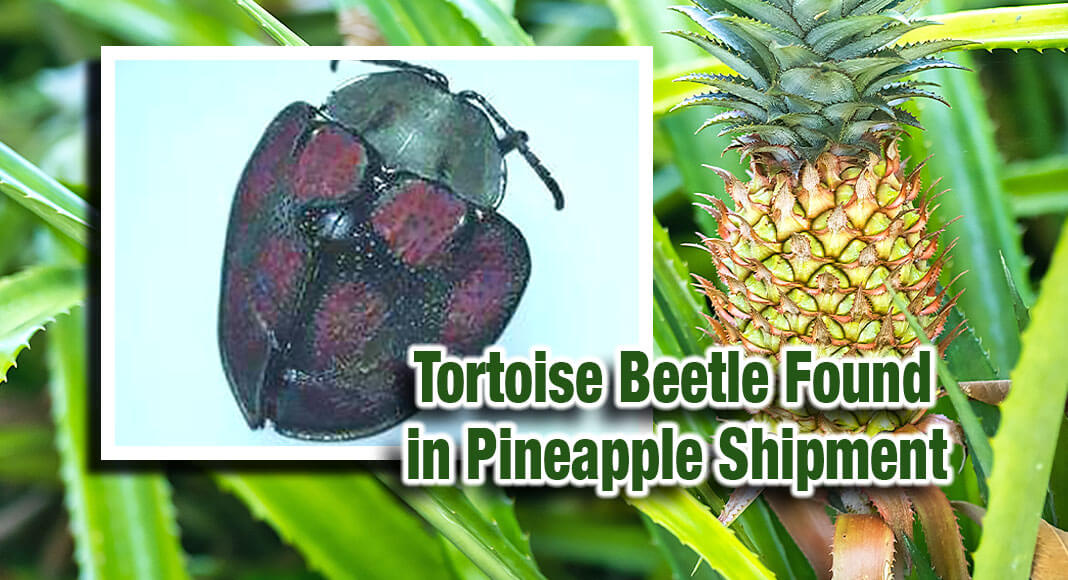
Texas Border Business
PROGRESO, Texas – Agriculture Specialists with U.S. Customs and Border Protection, Office of Field Operations (OFO) at the Progreso Port of Entry intercepted a “First in Port” pest, a tortoise beetle found with a pineapple shipment.
“CBP Agriculture Specialists play a vital role in safeguarding our frontline by protecting the agriculture industry which in turn protects our economy. The vigilance displayed by CBP Agriculture Specialists at the Port of Progreso is a prime example of their commitment to the CBP mission,” said Port Director Walter Weaver, Progreso/Donna Port of Entry.
The interception occurred on March 7, 2023, at the Progreso International Bridge during an examination of a Mexican tractor trailer carrying fresh pineapple. During examination of the trailer floor, CBP Agriculture Specialists discovered a tortoise beetle. The beetle was submitted for identification to a local identifier, an entomologist at the U.S. Department of Agriculture on March 7, 2023. The initial pest identification was confirmed as belonging to the genus Stolas sp. (Chrysomelidae), a First-in-Port interception, by the U.S. Department of Agriculture’s (USDA) Systematic Entomology Laboratory, Smithsonian Institution in Washington D.C. on March 8, 2023. The pineapple shipment was refused entry and the commodity re-exported to Mexico.
Insects in the Chrysomelidae family, also known as leaf beetles, are further classified as tortoise beetles in the subfamily, Cassidinae for their tortoise shaped carapace, which the genus Stolas sp., belongs to. They are known to feed on leaves and plant material. The Stolas genus is a known invasive pest in the U.S. and is deemed harmful to the U.S. agriculture industry, which in turn can have a detrimental impact on the U.S. economy.













